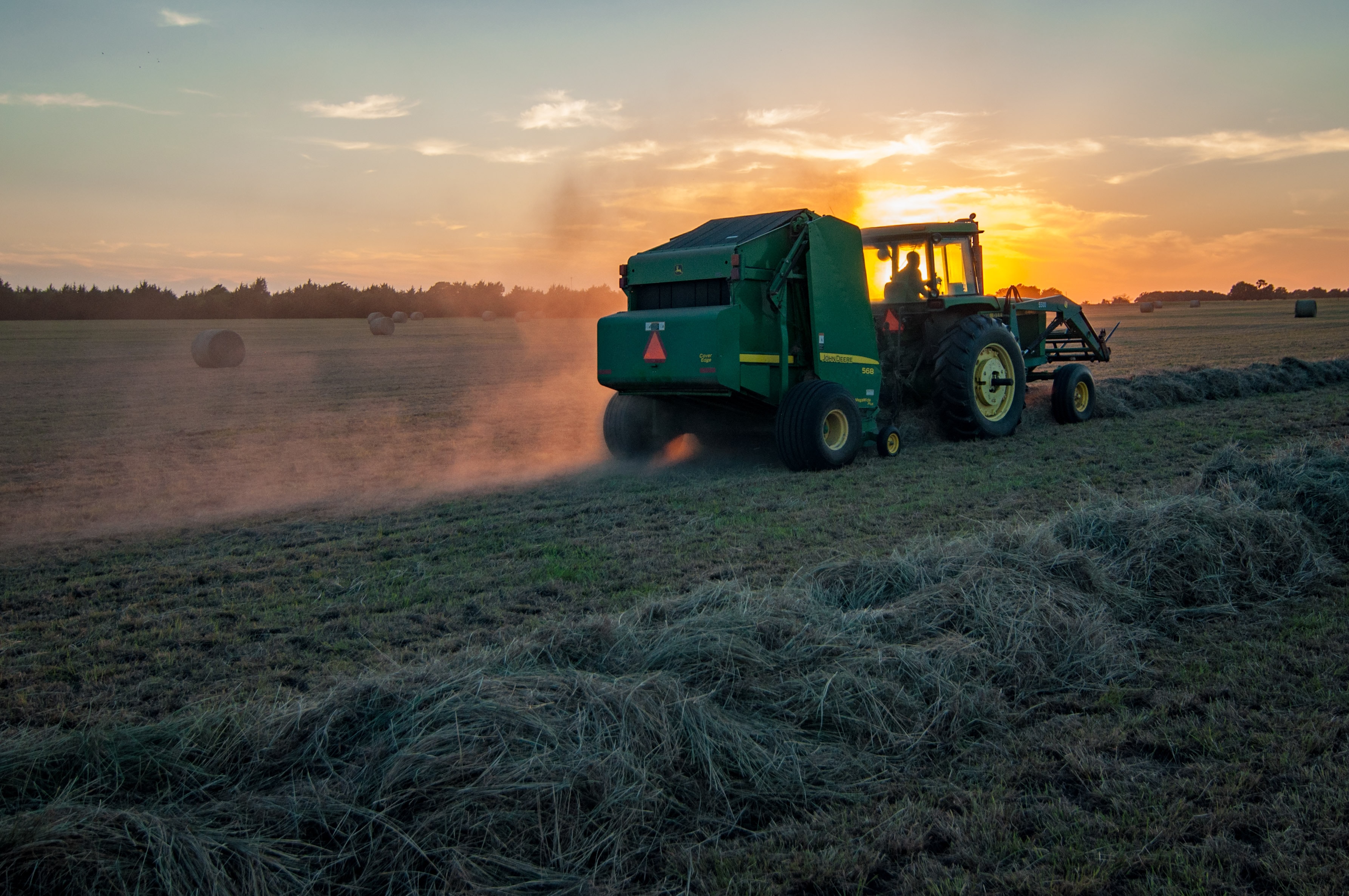|
|
Resilient farming by adaptive microclimate management (StarGate)
Since the mid-20th century, the Earth’s climate has been rapidly changing. Amongst others, this includes changes of the diurnal temperature, rainfall patterns including the number of wet and dry spells, as well as altered the frequency, duration and spatial distribution of extreme weather like hailstorms, windstorms, frost, and heat wave events.
Agriculture is perhaps the most weather/climate dependent sector of the economy, and changes in the weather/climatic patterns are strongly affecting it, in terms of the productivity, risk assessment/management, and environmental preservation.
From the other, the current farm practices are producing the 1/4th of the global greenhouse gas emissions annually, contributing and further enhancing the climate change, retaining a continuous cycle of altering the climate and impacting the food production system. The only way to break this cycle, is to change the current farm practices and methods of landscape management, as well as the associated policies, through the development, promotion and adoption of innovative climate smart practices and methods that will help the food production system to adapt to the climate change and become more sustainable, while mitigating the climate shocks more effectively, becoming more resilient.
STARGATE aspires to develop a breakthrough, multiscale and holistic climate smart agriculture methodology, capitalizing innovations in the field of microclimate and weather risk management, as well as in the field of landscape design. It will be based on Earth Observation, weather/climate intelligence and IoT technologies to support a more effective farm/parcel management and related options for adaptation on climatic changes, local and regional policy formulation leading to better landscape management, protection against climatic risks and implementation related to mitigation on microclimate changes.

Vidzeme has been identified as a project pilot area in Latvia to look for solutions that would help farmers in the region to reduce the negative impact of climate change in the sector. With European Union funding, it is planned to create a reliable weather forecasting program, combined with a crop loss calculator, offering a separate planning tool for mitigation. The results of the project are especially important this time, as they will be taken into account in the spatial planning of the region, as the ability to adapt to changing environmental and economic conditions is defined as an important precondition for the development of Vidzeme planning region.
Significant pilot projects are also planned in other countries within the project, which include landscape management and adaptation of agricultural activities to climate change, improvement of rural irrigation systems, etc. Several of the pilots will also address livestock management, both by addressing the impact of these animals on increased greenhouse gas emissions and by addressing livestock welfare and production issues using high-tech solutions.

| Title |
Resilient farming by adaptive microclimate management
|
| Abbreviation |
StarGate |
| Lead partner |
The Centre for Research and Technology-Hellas (Greece) |
| Programme |
Horizon 2020 |
| Partners |
- “Lesprojekt Sluzby Ltd” (Czech Republic)
- Galilee Research Institute (Israel)
- VUMOP- Research Institute for soil and water conservation (Czech Republic)
- “AgriSat Iberia SL” (Spain)
- “Neuropublic” (Greece)
- “GAIA EPICHEIREIN SA” (Greece)
- Vidzeme University of Applied Science (Latvia)
- “Agro Apps I.K.E” (Greece)
- “Meteoblue AG” (Switzerland)
- “Pessl Instruments GmbH” (Austria)
- “Innovagritech srl.” (Italy)
- “Doiseco Unipessoal LDA” (Portugal)
- Aristotle University of Thessaloniki (Greece)
- South Moravian region (Czech Republic)
- Institute of Bioorganic Chemistry of the Polish Academy of Science (Poland)
- Institute of Applied Informatics (Germany)
- Upper Galilee Regional Council (Israel)
- “Asplan Viak Internet” (Norway)
- “Rostenice” (Czech Republic)
- “Wireless Info” (Czech Republic)
- “Crevis Sprl” (Belgium)
- Portuguese Innovation Society (Portugal)
- “G.K. Kefalas Georgiki” (Greece)
- Flemish Institute for Technological research (Belgium)
|
| Objectives |
STARGATE overall objective is to co-design, co-create and co-validate a multiscale holistic methodology of Climate Smart Agriculture (CSA), that will help farmers and policymakers to achieve short and long-term adaptation to climate change, while the STARGATE innovations in microclimate and weather risk management, and in the field and regional landscape design will promote the resilience of farming systems.
Project objectives:
- to develop a state of affairs and a detailed requirements’ analysis for CSA
- to shape a stakeholder community and establish Living Labs
- to develop observational data infrastructure and data management framework
- to develop and provide climate services and agro-climatic indicators
- to develop methods and tools for decision making
- to evaluate the STARGATE methodology and DSS (decision support system) in real condition pilots
- to develop an outreach plan to maximize the society impact of STARGATE
- to develop an exploitation plan to maximize the business potential of STARGATE
|
| Activities |
- Building a STARGATE Living Lab users community that actively participates in the processes of design, development, validation and uptake of the proposed DSS
- Collecting and analysing the data that will lead to a thorough review of the current situation in the agricultural production system, finding the linkage between rural policies as well as EU’s Agri-environmental and climate measures (CAP’s second pillar) and climate adaptation strategies, and understanding the socioeconomic and socio-cultural aspects of climate smart agriculture following a multi-actor participatory approach
- Collecting, fusing and improving the potential of incoming data through their integration. The data will include: Meteorological data, Earth Observation, data, Sensors, Crowdsourcing, Biophysical data (Landscape Land Use,, Land Cover, DEM, Soil Maps, Climatic Maps).
- Operational production and provision of weather and climate information for different time scales that will be used to help farmers to make climate smart decisions and policy makers to assess the effect of different land uses and farming practices on mitigating climate change impacts.
- Developing a set of DSS for three potential domains: Farmers DSS focusing on Crop selection, Suitability toll hybrids, Crop rotation, Irrigation schedule, seeding, Tillage, Pesticides, Fertilization; Policies DSS focusing on Landscape/Land use management, Impact analysis, Subsidies, Risk management DSS focusing on early warning for extreme events and on system for Insurance
- Pilot testing - demonstrate the STARGATE prototypes at commercial plot scale in representative regions and crops (selection of cereal, wheat, corn, potato, sunflower, rape, tomato, onion, other vegetables, vine, fruit trees), by deploying, pilot-implementing, and validating them in campaign mode in all pilot areas in a joint venture of the local multi-actor communities
|
| Results |
- Design criteria and methodology for forming a Living Lab in an Agricultural Sector / for agri-food systems. Stakeholder maps for six pilot areas and roadmaps to prosperous climate-smart farming.
- Method for downscaling the application of macro policies (EU, international) to micro policies (local) in agricultural production system and vice versa, when considering the knowledge of the socio-economic and sociocultural aspects of climate smart agriculture following a multi-actor participatory approach.
- Methods for discovery and accessing data stored in different repositories and different formats
- New irrigation management plan that reflects on agri-food system development considering future climatic scenarios with respect on climate change.
- DSS focusing on Crop selection, Suitability toll hybrids, Crop rotation, Irrigation schedule, seeding, Tillage, Pesticides, Fertilization, Policies; DSS focusing on Landscape/Land use management, Impact analysis, Subsidies, Risk management; DSS focusing on early warning for extreme events a and on system for Insurance;
- Context-based models of Living Labs ecosystems and their application in agri-food systems.
- Application of method for risk management when coping with the impact and consequences of climatic changes (e.g. estimation of irrigation impact on the fields and crops taking into consideration temperature, precipitation, soil type and crop growth models among other parameters, under future climate transitions).
|
Budget
|
Total budget – 6 994 405 EUR
Vidzeme Planning Region – 134 250 EUR
|
| Implementation period |
01.10.2019. – 31.09.2023. |
| Contact person |
Maija Rieksta
Tel. +371 64116008, mob.tālr.26099521
E-pasts: maija.rieksta@vidzeme.lv
|
| Project webpage |
https://www.stargate-h2020.eu/
|
|
|







